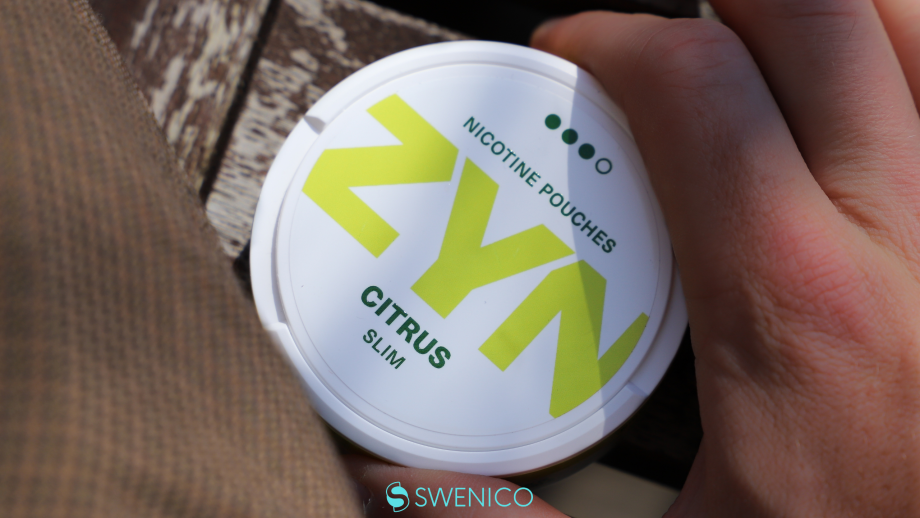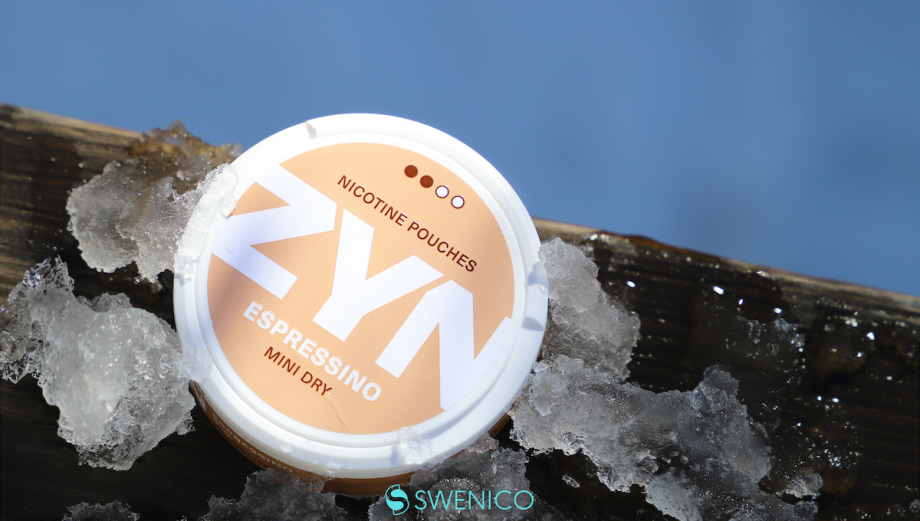Nicotine pouches are a relatively new form of tobacco product that have gained popularity in recent years. But while nicotine pouches are a relatively new product on the market, only rising to popularity in around 2018, they’re actually a product development of the traditional Swedish snus which has existed for well over a century. The difference between the traditional Swedish Snus and nicotine pouches is the fact that snus uses tobacco whereas nicotine pouches do not. Instead of tobacco, nicotine pouches use plant-fibers which then have added nicotine in them. Apart from that, snus and nicotine pouches are used in the exact same way.
The use of nicotine pouches has increased rapidly in many countries around the world, particularly in Scandinavia and the United States. In fact, a report by ResearchAndMarkets.com estimates that the global nicotine pouches market will reach $3.6 billion by 2025 (1).
However, the safety of nicotine pouches, particularly during pregnancy, is still a topic of debate. While some people argue that nicotine pouches are a safer alternative to smoking, others believe that they pose similar risks to traditional tobacco products. But either way, neither of these activities should be carried out by pregnant women.
The purpose of this article is to explore the safety of nicotine pouches during pregnancy. It will examine the effects of nicotine on fetal development, the risks associated with smoking during pregnancy, and the potential risks of using nicotine pouches during pregnancy. The article will also explore alternatives to nicotine pouches and the importance of seeking medical advice before using any form of nicotine during pregnancy.
Sources:
- ResearchAndMarkets.com. (2020). Global Nicotine Pouches Market Report 2020-2025: Growing Trend of Smokeless Nicotine Products Driving Market Growth.
Nicotine and Pregnancy
Let’s first answer the question quickly before digging into all the details. The short answer is no, nicotine pouches are not recommended during pregnancy. It is not advised to use nicotine pouches during pregnancy or consume nicotine pouches in any other way shape or form, in particular not via smoking, which is considered to be the most harmful alternative for several other reasons in addition to the nicotine alone.
Therefore, you should not use nicotine pouches during pregnancy.
Since nicotine pouches are a relatively new product, more studies need to be conducted on the use of nicotine pouches during pregnancy specifically. However, studies have been carried out for the use of snus as well as the use of other nicotine products such as smoking. Smoking may not be the best comparison to nicotine pouches since they are two completely different products and one involves inhaling harmful smoke which, that alone, has tremendously negative health consequences in addition to the nicotine in and of itself. In other words, when you evaluate the health effects of smoking, the exact same conclusions cannot be applied to nicotine pouches as there will always be questions about whether the health effects derive from nicotine alone or all the other harmful aspects of smoking.
At the same time, several studies have been conducted on snus which is a very similar product and is used in the exact same way and all the studies have been concluded that women should refrain from using snus and any nicotine product during pregnancy.
Nicotine is a highly addictive substance found in tobacco products such as cigarettes, cigars, and chewing tobacco. When a person smokes or uses these products, nicotine enters the bloodstream and affects the entire body, including the brain. Nicotine can have harmful effects on a developing fetus during pregnancy, and it is important for pregnant women to understand the risks associated with nicotine exposure.
Studies have shown that smoking during pregnancy can increase the risk of complications such as premature birth, low birth weight, and stillbirth. According to the American College of Obstetricians and Gynecologists (ACOG), smoking during pregnancy can also increase the risk of certain birth defects, such as cleft lip and palate, and can have long-term effects on a child’s health, including an increased risk of respiratory problems, asthma, and sudden infant death syndrome (SIDS) (1).
In addition to the risks associated with smoking, exposure to secondhand smoke can also be harmful to a developing fetus. The Centers for Disease Control and Prevention (CDC) reports that exposure to secondhand smoke during pregnancy can increase the risk of complications such as low birth weight and SIDS (2).
Even if a pregnant woman does not smoke, exposure to nicotine from other sources such as nicotine gum, patches, or e-cigarettes can also have harmful effects on fetal development. A study published in the Journal of the American Medical Association found that women who used nicotine replacement therapy during pregnancy had a higher risk of preterm birth and low birth weight infants compared to women who did not use nicotine replacement therapy (3).
Therefore, it is important for pregnant women to avoid nicotine exposure as much as possible to reduce the risk of harm to their developing fetus.
Sources:
- American College of Obstetricians and Gynecologists. (2018). Smoking and Tobacco Use Cessation During Pregnancy.
- Centers for Disease Control and Prevention. (2020). Smoking and Tobacco Use: Secondhand Smoke and Pregnancy.
- Coleman, T., Chamberlain, C., Davey, M. A., Cooper, S. E., Leonardi-Bee, J., & Cooper, S. (2012). Pharmacological interventions for promoting smoking cessation during pregnancy. Cochrane Database of Systematic Reviews, 9.
Nicotine Pouches and Pregnancy
Nicotine pouches are a relatively new form of tobacco product that have gained popularity in recent years. They are marketed as a safer alternative to smoking, as they do not involve inhaling smoke and do not produce harmful chemicals associated with combustion.
However, there is limited research on the safety of nicotine pouches during pregnancy. As previously stated due to the fact that they are a relatively new product. The composition of nicotine pouches varies, but most contain a combination of nicotine, water, salt, and flavorings. It is unclear how the use of nicotine pouches during pregnancy may affect fetal development.
A study published in the journal Nicotine & Tobacco Research examined the effects of nicotine pouch use during pregnancy in mice (1). The study found that exposure to nicotine pouches during pregnancy led to decreased fetal weight and altered fetal brain development. These findings suggest that nicotine pouches may pose risks to fetal development, similar to traditional tobacco products.
Additionally, the use of nicotine pouches during pregnancy may increase the risk of premature birth and stillbirth.
Therefore, it is important for pregnant women to avoid the use of nicotine pouches during pregnancy to reduce the risk of harm to their developing fetus. Moreover, you should always consult a doctor if you have any questions.
Sources:
- Mattsson, K., Lindblad, M., & Weisner, C. (2020). Exposure to Nicotine Pouches During Pregnancy Impairs Fetal Brain Development in Mice. Nicotine & Tobacco Research, 22(4), 509-516.
- Coleman, T., Chamberlain, C., Davey, M. A., Cooper, S. E., Leonardi-Bee, J., & Cooper, S. (2012). Pharmacological interventions for promoting smoking cessation during pregnancy. Cochrane Database of Systematic Reviews, 9.






